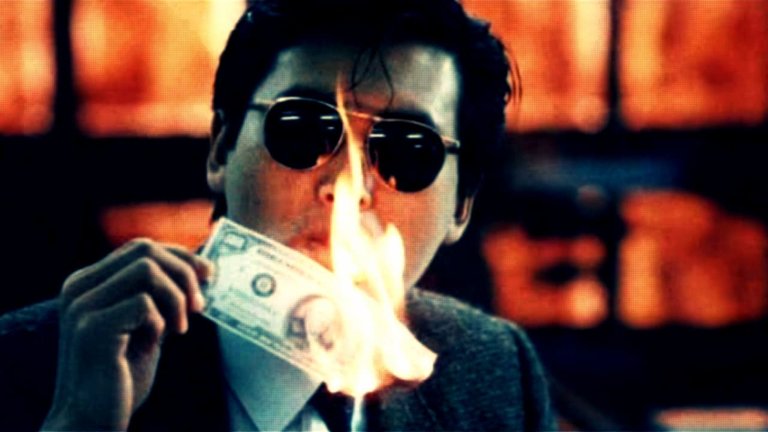
Few people in the history of film had the honour of an entire subgenre or filmmaking style being made after them. John Woo, first Hong Kong filmmaker to continue successful career in Hollywood, is one of those precious few. In late 1980s and early 1990s he made a series of action films that managed not only to redefine the genre but also to bring global respect and admiration to previously overlooked Hong Kong cinema. In previous decade John Woo was undoubtedly one of the most influential filmmakers, at least judging by the multitudes of action-oriented filmmakers who tried to recreate his style in their films. Although Woo had directed before, there is a single point in his career when all the elements of his formula came into place. That point is A Better Tomorrow, 1986 action film that brought him his first major success and later paved the way for other Hong Kong directors willing to explore similar avenues of film making. It is understandable why A Better Tomorrow is now often referenced as "The movie that began it all".
Plot of the film revolves about two brothers. The older is Ho Tse Sung (played by Ti Lung), gangster who runs smooth and successful counterfeit operation with his trusted aide and friend Mark Lee (played by Chow Yun Fat). The younger is Kit (played by Leslie Cheung), graduate of Hong Kong police academy and blissfully unaware of the true nature of his brother's business. Ho's routine business trip to Taiwan starts the series of violent and tragic events that would shatter his life and family - while Ho himself gets ambushed and forced to turn himself to the police, his ailing father gets killed in botched kidnapping attempt by rival gang. Three years later Ho is out of prison and doesn't want anything but to live an honest life and reunite with the brother. But this is harder than he had ever imagined – Kit blames him for the death of their father and apparent failure of his own police career, while his former employers, including Mark, crippled while conducting a retribution raid three years ago, want him back in their organisation. Kit, on the other hand, starts his own investigation on counterfeiters, this time led by new young and ruthless boss Shing (played by Waisee Lee), and Ho is forced to choose sides in a violent confrontation that is about to begin.
The formula for movies most usually associated with John Woo - gangster setting, choreographed violence, themes of male bonding combined with sentimentality – was comprised of the elements present in previous films, albeit made in cinema industries other than Hong Kong. Apart from Hollywood as most obvious source of inspiration, John Woo's films were influenced by French gangster films of Jean-Pierre Melville and Jose Giovanni. Woo pays tribute to those films by dressing his gangster protagonists in long trenchoats, similar to those worn by Alain Delon's character in Melville's Le Samourai. Choreographed violence, on the other hand, can be attributed to the influence of great Sam Peckinpah and his disciple Walter Hill, two men usually referred as the best action directors until John Woo era. However, Woo creates something original out of those foreign elements by putting them in the very specific context of Hong Kong - place with ethical codes, culture and moral alignments are slightly different than those in the West. For example, the line that separates legitimate business from organised crime is much more blurred, and this was even reflected in this film; drinking incident, referred by Ho and Mark, was allegedly based on real-life adventures of Hong Kong film producer who got too close with the wrong people. Even the title of the film has ironic twist, considering A Better Tomorrow was made eleven years before Chinese take over - event that had apocalyptic meaning for many citizens of Hong Kong, including Woo. Because of that, A Better Tomorrow is at times very dark and melancholic film - which later became an important part of John Woo's formula.
Being the first film, of course, meant that some elements of that particular formula weren't exactly polished. The script was simple and tight, yet almost ruined by using few completely unnecessary characters, like Kit's girlfriend or Taiwanese police inspector (played by Woo himself). The musical score by Ka Fai-Koo at first sounds very corny, but after a while becomes quite adequate for this kind of films. Woo displays his skills in few very effective action scenes - the best of them is hit in the restaurant that combines slow-motion with explosive actions and lots of fake blood. The actors are great, especially Ti Lung as world-weary gangster and Cheung as his neurotic brother, but the show was stolen by the actor who played supporting character. Chow Yun Fat displays whole variety of talent in his portrayal of Mark - at first he is cocky, almost comical; later in the film he is pathetic wreck of his former self. We seldom have opportunity to watch character who is "cool" and vulnerable in the same time. It is hardly surprising that the same actor appeared in the sequel of this film few years later, this time established as Hong Kong's top movie star. In the end, even those who don't particularly like John Woo and Hong Kong cinema would probably agree that A Better Tomorrow was a title quite fitting for this film.
RATING: 8/10 (+++)
(Note: The text in its original form was posted in Usenet newsgroup rec.arts.movies.reviews on October 9th 2001)
==
Blog in Croatian https://draxblog.com
Blog in English https://draxreview.wordpress.com/
Cent profile https://beta.cent.co/@drax
Minds profile https://www.minds.com/drax_rp_nc
Brave browser: https://brave.com/dra011
BTC donations: 1EWxiMiP6iiG9rger3NuUSd6HByaxQWafG
ETH donations: 0xB305F144323b99e6f8b1d66f5D7DE78B498C32A7
Movie URL: https://www.themoviedb.org/movie/11471?language=en-US
Critic: AAA
You have received a 2.21% upvote based on your stake of 2456.51505241 UFM! Votes today: 2